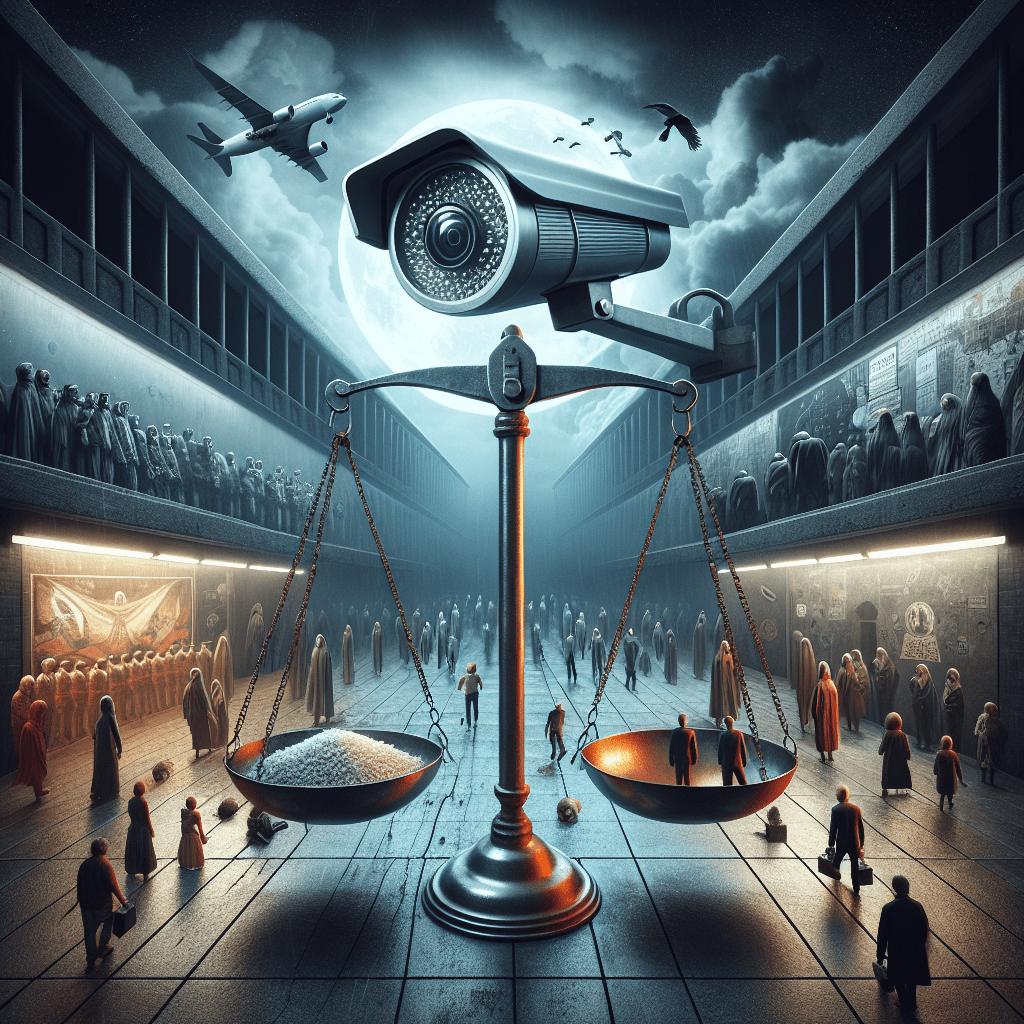In recent years, the use of surveillance cameras has become increasingly prevalent in both public and private spaces. While these cameras are often promoted as a tool to enhance security and deter crime, they have also sparked a heated debate over their impact on civil liberties. Critics argue that widespread surveillance infringes on individuals’ privacy rights and creates a culture of constant monitoring, while proponents maintain that it is necessary for public safety. This article will explore the controversy surrounding surveillance cameras and examine the delicate balance between security and civil liberties.
The Case for Surveillance Cameras
Advocates of surveillance cameras argue that they are a crucial tool in deterring crime and ensuring public safety. By monitoring public spaces, law enforcement agencies can quickly identify and respond to criminal activity, leading to a reduction in incidents such as theft, vandalism, and violence. In addition, the presence of cameras can act as a deterrent, dissuading potential wrongdoers from committing crimes in the first place. Proponents also point to the role of surveillance cameras in aiding investigations and providing crucial evidence in criminal cases.
The Concerns Surrounding Surveillance Cameras
Despite the purported benefits of surveillance cameras, critics raise valid concerns about the impact of constant monitoring on civil liberties. Privacy advocates argue that the widespread use of surveillance cameras erodes individuals’ right to privacy and creates a culture of surveillance that can have a chilling effect on free speech and expression. In addition, there are concerns about the potential for misuse of surveillance footage, including unauthorized access, data breaches, and the targeting of marginalized communities by law enforcement.
Public Reaction and Policy Responses
The debate over surveillance cameras has prompted a variety of public reactions and policy responses. In some cases, communities have protested the installation of cameras in public spaces, citing concerns about privacy and civil liberties. In response to these concerns, some jurisdictions have implemented restrictions on the use of surveillance cameras, such as requiring public notice of their presence or prohibiting their use in certain sensitive areas.
Conclusion
The controversy surrounding surveillance cameras reflects a tension between the need for security and the preservation of civil liberties. While cameras can be a valuable tool in enhancing public safety, it is essential to strike a balance that respects individuals’ right to privacy and freedom from constant monitoring. As surveillance technology continues to evolve, it is crucial for policymakers and communities to engage in dialogue and establish clear guidelines to ensure that surveillance practices are transparent, accountable, and grounded in respect for civil liberties.
FAQs
Q: Do surveillance cameras make communities safer?
A: Proponents argue that surveillance cameras can deter crime and aid in law enforcement efforts, leading to safer communities. However, critics contend that the impact on safety is mixed and that other measures, such as community policing and social programs, may be more effective in reducing crime.
Q: Can surveillance cameras be hacked?
A: Like any technology, surveillance cameras can be vulnerable to hacking and unauthorized access. It is essential for organizations and individuals to take steps to secure their camera systems and protect the privacy of those being monitored.
TIP:
When considering the use of surveillance cameras, it is important to carefully weigh the potential benefits against the risks to civil liberties. Establishing clear policies and guidelines for camera use, ensuring transparency and accountability, and engaging with community stakeholders can help strike a balance between security and privacy.
#Controversy #Surrounding #Surveillance #Cameras #Balancing #Security #Civil #Liberties
